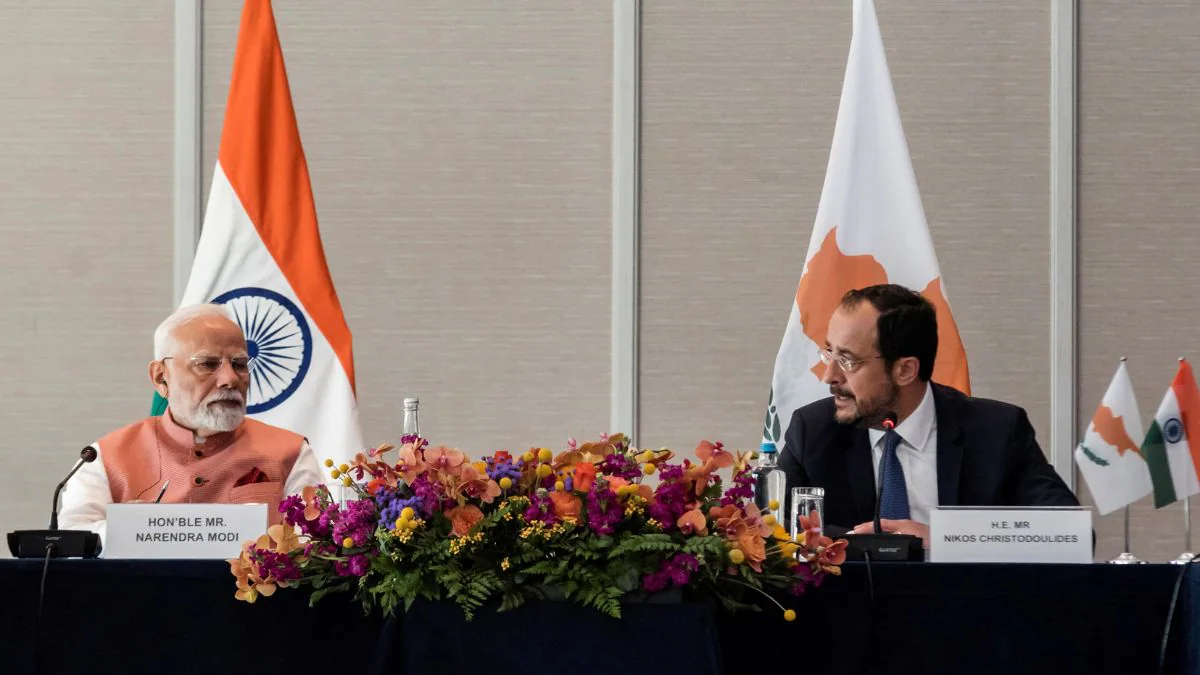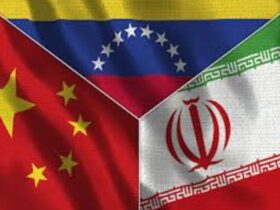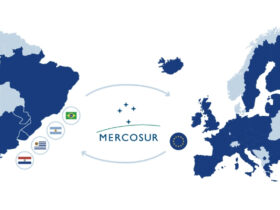Article by Hüseyin Işıksal, a presidential advisor from the Turkish Republic of Northern Cyprus, published in Anadolu Agency and Daily Sabah on June 26.
Article by Hüseyin Işıksal, a presidential advisor from the Turkish Republic of Northern Cyprus, published in Anadolu Agency and Daily Sabah on June 26.
Indian Prime Minister Narendra Modi made a critical visit to the Greek Cypriot Administration of Southern Cyprus in recent weeks.
The visit came at a time when tensions between India and Pakistan were rising and the conflict between Iran and Israel was becoming more open.
So, what does Modi’s visit mean in terms of political politics? Where should it fit into the new world equation that is being established?
The article titled “Decoding Indian Prime Minister Modi’s visit to Cyprus” by Hüseyin Işıksal, who is a presidential advisor from the Turkish Republic of Northern Cyprus, published in Anadolu Agency and Daily Sabah on June 26, contains important clues in understanding Modi’s visit to Cyprus.
We find it useful to share this valuable article with our readers.
The title and subheadings of the article belong to us.
Under the shadow of the Iran-Israeli conflict, Indian Prime Minister Narendra Modi visited the Greek Cypriot administration on June 15-16, en route to the G-7 summit in Canada. This marked the first official visit of Modi to a foreign country following the recent conflict with Pakistan at the beginning of May 2025. This also made him the first Indian prime minister to visit Cyprus since 2002.
India – Greek Cypriot Administration relations
From the outset, the Greek Cypriot leadership voiced support for India’s bid to become a permanent member of a potentially expanded United Nations Security Council. The leaders also expressed a desire to deepen cooperation within international organizations and agreed to support each other’s candidacies in multilateral forums. In a notable diplomatic gesture, the Greek Cypriot administration expressed full support for India’s position on the Kashmir issue and awarded Modi the “Makarios Medal,” its highest honor bestowed on foreign dignitaries.
The two sides committed to preparing a bilateral action plan for 2025-2029 to guide future relations. Additionally, they signed a 10-point “Joint Declaration on the Implementation of the Comprehensive Partnership.” One of the key components of this declaration is the Greek Cypriot administration’s willingness to host Indian naval vessels at its ports. The declaration also outlines plans for joint maritime training and the negotiation of a Bilateral Defense Cooperation Programme (BDCP) in 2025, focused on enhanced defense industrial collaboration.
Modi’s Cyprus trip from a geopolitical perspective
What, then, is the real significance, or the “code,” of Modi’s visit, which some Western media interpreted as a “message to Türkiye”? On the surface, the visit appears to be part of India’s broader strategy to counter the Türkiye-Pakistan- Azerbaijan alliance by strengthening ties with Greece, Cyprus, and Armenia.
However, the motivations behind the visit go much deeper. Chief among them is India’s interest in the India-Middle East-Europe Economic Corridor (IMEC), conceived as a counterbalance to China’s “One Belt One Road” Initiative. This ambitious corridor, combining sea and rail networks, is designed to link India with Europe via the Arabian Peninsula and the Eastern Mediterranean, passing through key U.S. allies such as the UAE, Saudi Arabia, Jordan, and Israel. Given Türkiye’s strategic location as the most logical trade route for East-West commerce, its exclusion from this corridor has provided fresh impetus for the Greek Cypriot administration to court India.
Modi’s Cyprus trip and China-India relations
In this connection, it should be underlined that despite their trade ties, the relationship between China and India is tense and fragile due to various factors. For instance, China has strong ties with Pakistan, and the Belt and Road Initiative passes through Kashmir. Furthermore, they have disputed border claims in the Himalayas that even led to the 1962 Sino-Indian War.
The Greek Cypriot Administration’s anti-Türkiye strategy
Secondly, Greek Cypriot leader Nikos Christodoulides once again appears to be using regional developments to manufacture a sense of security out of insecurity, likely for domestic political gain. This motive is evident in the joint declaration, which prominently references the United Nations Convention on the Law of the Sea (UNCLOS), a treaty Türkiye is not a signatory to, in connection with maritime sovereignty and freedom of navigation. Through this, indirect support is given to the so-called Seville Map, which Greece and the Greek Cypriot administration use to justify their contested maritime claims in the Eastern Mediterranean, including areas claimed by Türkiye and the Turkish Republic of Northern Cyprus (TRNC).
Further highlighting this intention is Article 5 of the declaration, titled “Security, Defense and Crisis Management,” which states that both sides will encourage more frequent Indian naval port calls and explore opportunities for joint maritime exercises. The Greek side has previously signed similar defense and military cooperation agreements with countries such as Russia, the United States, France and Israel, often resulting in little more than becoming a customer for foreign arms. India now appears poised to enter this market, particularly with its growing drone industry, though it is unlikely to pose any real competition to Türkiye’s advanced and globally competitive drone sector.
Türkiye and Modi’s visit to Cyprus
In conclusion, Modi’s visit can be seen as yet another example of the Greek Cypriot leadership fostering insecurity under the guise of security. Christodoulides, unable to respond constructively to shifting regional dynamics, has once again reverted to the familiar logic of “the enemy of my enemy is my friend.” This short-sighted and dangerous approach, driven primarily by hostility toward Turks, fuels an endless search for foreign arms and strategic alliances, frequently making the Greek Cypriot administration increasingly dependent on more powerful states. Crucially, this policy risks the security of not only the Turkish Cypriot but also the Greek Cypriot people of the island. The Greek Cypriot leadership’s deepening partnership with Israel has turned southern Cyprus into a vital logistical base for Israeli military operations. Numerous reports suggest that the British bases at Akrotiri and Dhekelia
are being used to support Israel’s actions in Gaza, Lebanon and even Iran, placing the island at risk of becoming a target for retaliatory strikes. All such military activities are conducted with the full knowledge and consent of the Greek side. The recent alignment with India adds further potential risks from countries like Pakistan, Iran and China.
The clearest takeaway from Modi’s visit, mirroring similar geopolitical maneuvers, is this: In a rapidly deteriorating global landscape, filled with volatility and violence, the sovereignty of the TRNC and Türkiye’s role as a guarantor remain essential pillars of regional peace and stability. This visit and the stance of the southern Cyprus leadership only reinforce the validity of the “two-state solution” proposed by TRNC President Ersin Tatar. In the turbulent realities of today’s world, it is the only realistic and stable framework on the table.
















Leave a Reply